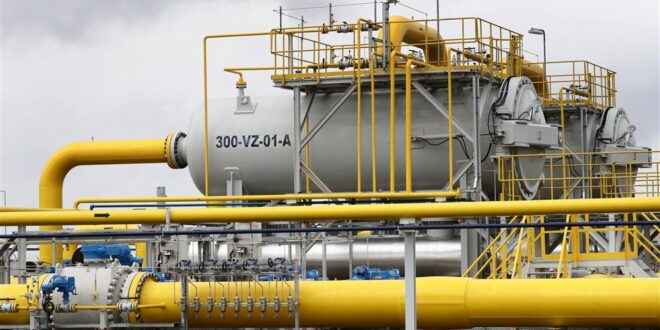Serbia is negotiating with partners from Azerbaijan on the amount and prices of gas that will be received through the Serbia-Bulgaria gas interconnection, the Ministry of Mining and Energy confirmed for Demostat .
They state that Serbia could receive that gas as early as next year. They add that Serbia is also considering the possibility of reserving a certain gas capacity in the LNG terminal for liquefied natural gas in Alexandroupolis, Greece.
the construction of the Serbia-Bulgaria gas interconnector, which should enable the diversification of supply sources, greater energy stability and free Serbia and the region from dependence on Russian gas, will be completed before the start of the new heating season, i.e. by the fall of this year, assure Demostat sources from the Energy Community.
The gas interconnector is crucial for energy diversification in Serbia, because the country will get an infrastructure through which it will be able to supply gas from different sources.
However, it is up to Serbia to agree with the suppliers on the quotas, quantity and prices of the gas that will arrive in the future.
Does Serbia already have signed agreements or agreements with new suppliers? From which countries will the gas come? When will that gas go to Serbia?
The Ministry of Mining and Energy responds that talks are ongoing with partners from Azerbaijan about the quantity and prices of gas, “which Serbia could receive starting next year.”
Also, as they state, Serbia is considering the possibility of reserving a certain gas capacity in the LNG terminal for liquefied natural gas in Alexandroupolis.
As a reminder, Srbijagas CEO Dušan Bajatović said in mid-March that Serbia has already reserved 300 million cubic meters of gas in the LNG terminal for liquefied natural gas in the Greek port of Alexandroupolis.
The Ministry reminds that with the completion of the construction of the Serbia-Bulgaria gas interconnection, Serbia will have the opportunity to connect with gas sources coming to Greece, including gas from Azerbaijan and the Caspian region and the LNG terminal in Greece.
According to Demostat’s sources from the Energy Community, Azerbaijan is Serbia’s most reliable supplier of natural gas.
When it comes to liquefied natural gas, the LNG terminal in Alexandroupolis in Greece can receive gas from all over the world, so Qatar, Norway or American companies could be among the suppliers, according to sources from the Energy Community for Demostat.
The goal is to reduce dependence on Russia and Russian gas
The Serbia-Bulgaria gas interconnection is part of a wider EU initiative, the Southern Gas Corridor, which aims to reduce Europe’s dependence on Russian gas.
The gas interconnector should change the energy picture of the entire region, which is largely dependent on Russian gas.
When it comes to Serbia, gas accounts for about 13 percent of primary energy consumption, and currently it can enter the country only through two points – from Bulgaria near Zaječar via the Balkan Stream gas pipeline (part of the Turkish Stream, a joint project of Russia and Turkey), and from Hungary .
Serbia is dependent on Russian gas, which is transported to our country via the Turkish Stream – from Russia, under the Black Sea, via Turkey and Bulgaria. A part of Russian gas can also pass through Ukraine and Hungary. Serbia buys Russian gas at a preferential price, while the remaining, small part of the gas is bought on the market at market prices.
The goal of the European Union is energy diversification, especially after the war in Ukraine began, due to which some EU countries have freed themselves from dependence on Russian gas or are on the way to do so.
The EU is helping Serbia and the region to diversify their sources of gas supply.
That is why the support for the construction of the Serbia-Bulgaria interconnector.
Namely, through the IPA funds, the EU allocated EUR 49.6 million in grants for the gas interconnector project, the total value of which is EUR 85.5 million. Bulgaria also received a grant of 27.6 million euros from the EU for the construction of a gas pipeline on its territory.
The rest of the money was secured by Serbia through a loan from the European Investment Bank, and 15 million euros and 7.5 million euros were allocated from the budget for preparatory work and design.
The total length of the Serbia-Bulgaria gas pipeline through both countries will be 170 kilometers and it will be two-way along its entire length. The gas pipeline in Serbia will be 109 kilometers long.
The gas pipeline will enable the transfer of 1.8 billion cubic meters of natural gas per year.
As announced, the new gas pipeline will provide an additional 60 percent increase in capacity compared to Serbia’s current annual needs, which amount to around three billion cubic meters of gas per year.
It will greatly increase the overall security of natural gas supply and contribute to cleaner energy goals.
This project will enable easier access to gas to those places that did not have it until now, namely Bela Palanka, Pirot and Dimitrovgrad.
 Eurasia Press & News
Eurasia Press & News




